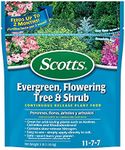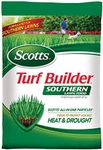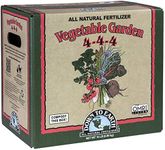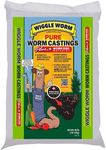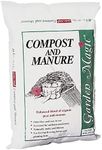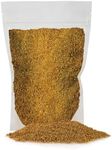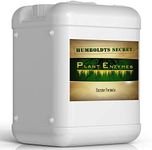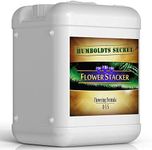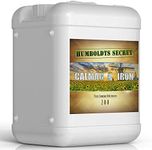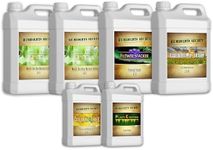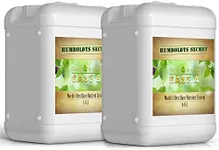Buying Guide for the Best Compost Fertilizers
Choosing the right compost fertilizer can significantly impact the health and growth of your plants. Compost fertilizers are organic materials that have been decomposed and recycled as a fertilizer and soil amendment. They enrich the soil with essential nutrients, improve soil structure, and enhance the soil's ability to retain moisture. When selecting a compost fertilizer, it's important to consider several key specifications to ensure you pick the best fit for your gardening needs.Nutrient ContentNutrient content refers to the levels of essential nutrients like nitrogen (N), phosphorus (P), and potassium (K) present in the compost fertilizer. These nutrients are crucial for plant growth. Nitrogen promotes leafy growth, phosphorus supports root development and flowering, and potassium enhances overall plant health. Compost fertilizers are often labeled with an N-P-K ratio, such as 5-3-2. For leafy vegetables, a higher nitrogen content is beneficial, while flowering plants may require more phosphorus. Assess your plant's needs to determine the appropriate nutrient balance.
Organic MatterOrganic matter in compost fertilizer is the decomposed plant and animal residues that improve soil structure, water retention, and microbial activity. High organic matter content is important for enhancing soil fertility and health. Compost fertilizers with higher organic matter content are ideal for improving poor soils and supporting long-term soil health. If your soil is already rich in organic matter, you might opt for a compost with a balanced or lower organic matter content.
pH LevelThe pH level of compost fertilizer indicates its acidity or alkalinity, which can affect nutrient availability and microbial activity in the soil. Most plants prefer a slightly acidic to neutral pH (6.0-7.0). Compost fertilizers typically have a neutral pH, but it's important to check if you have specific plants with particular pH requirements. If your soil is too acidic or alkaline, choose a compost that can help balance the pH to the desired level for your plants.
TextureThe texture of compost fertilizer refers to its particle size and consistency. Fine-textured compost is well-decomposed and easy to mix into the soil, making it suitable for seed starting and top dressing. Coarse-textured compost contains larger particles and is better for improving soil structure and aeration. Choose a texture that matches your gardening application. For example, fine compost is ideal for potting mixes, while coarse compost is better for garden beds and landscaping.
Source MaterialsSource materials are the original organic materials used to create the compost fertilizer, such as plant residues, animal manure, or food waste. The source materials can influence the nutrient content and quality of the compost. Compost made from diverse sources tends to have a more balanced nutrient profile. If you prefer a specific type of compost, such as vegan compost (plant-based) or manure-based compost, consider the source materials listed on the product. Choose a compost that aligns with your gardening philosophy and plant needs.
MaturityMaturity refers to the degree of decomposition of the compost fertilizer. Mature compost is fully decomposed, dark, crumbly, and has an earthy smell. It is safe to use directly on plants without the risk of burning them. Immature compost may still be decomposing and can harm plants if applied too soon. Always opt for mature compost to ensure it provides immediate benefits to your soil and plants. Check for signs of maturity, such as a uniform texture and absence of recognizable organic materials.


